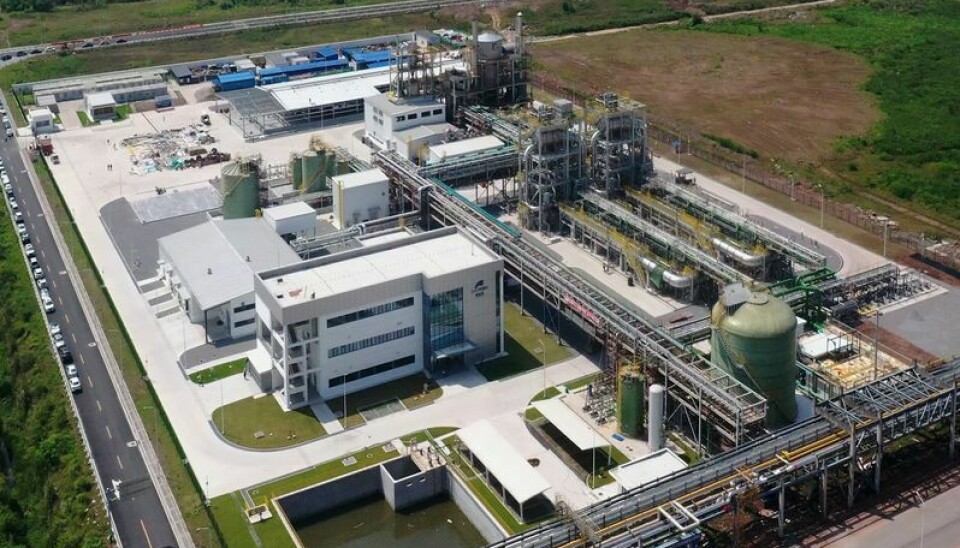
Feed-from-gas ingredient gets US approval
FeedKind awarded GRAS status for inclusion at up to 18% in salmonid diets
Calysta, which produces a fish feed ingredient from single cell proteins that feed off natural gas, has achieved Generally Recognised As Safe (GRAS) status with the United States Food and Drug Administration (FDA), it announced today.
The FDA’s Center for Veterinary Medicine has granted Calysta’s FeedKind protein GRAS status for use in the US in salmonid feeds at up to 18% of the diet. In the US FeedKind will be listed under its common name, dried fermentation biomass.
California-headquartered Calysta said the ruling means aquaculture companies in the US now have access to a nutritionally rich and non-GMO protein ingredient that both helps preserve biodiversity while addressing a growing market need for proteins for feed and food.
Allan LeBlanc, vice president and aquaculture lead at Calysta, said: “With so many exciting developments in US aquaculture, we are thrilled to be able to access this market. FeedKind protein is a perfect fit for the trout industry and the burgeoning recirculating aquaculture systems (RAS) industry for Atlantic salmon.
An exceptional alternative
“FeedKind is an exceptional alternative to other sources of protein, and is free from heavy metals, pesticides, and microplastics, ensuring animals are only fed the nutrients they need. Because it can be produced year-round using no arable land and without using any plant or animal ingredients, it truly is a protein without limits.”
FeedKind protein is a perfect fit for the US trout industry
Calysta aquaculture lead
Allan LeBlanc
GRAS status comes after Calysta successfully switched on its first commercial-scale facility via Calysseo, its joint venture with animal feed giant Adisseo, providing 20,000 tonnes of protein for the Asian aquaculture market. Calysseo has also announced its intentions to expand its production footprint by 100,000 tonnes by establishing a facility in Al Jubail in the Kingdom of Saudi Arabia. It is hoped the facility could become operational by the end of 2026, pending necessary construction and approvals.
FeedKind is made with naturally occurring bacteria that consume methane (natural gas). Energy giant BP’s investment arm has put money in Calysta, which envisages siting FeedKind plants at oil and gas sites.























































